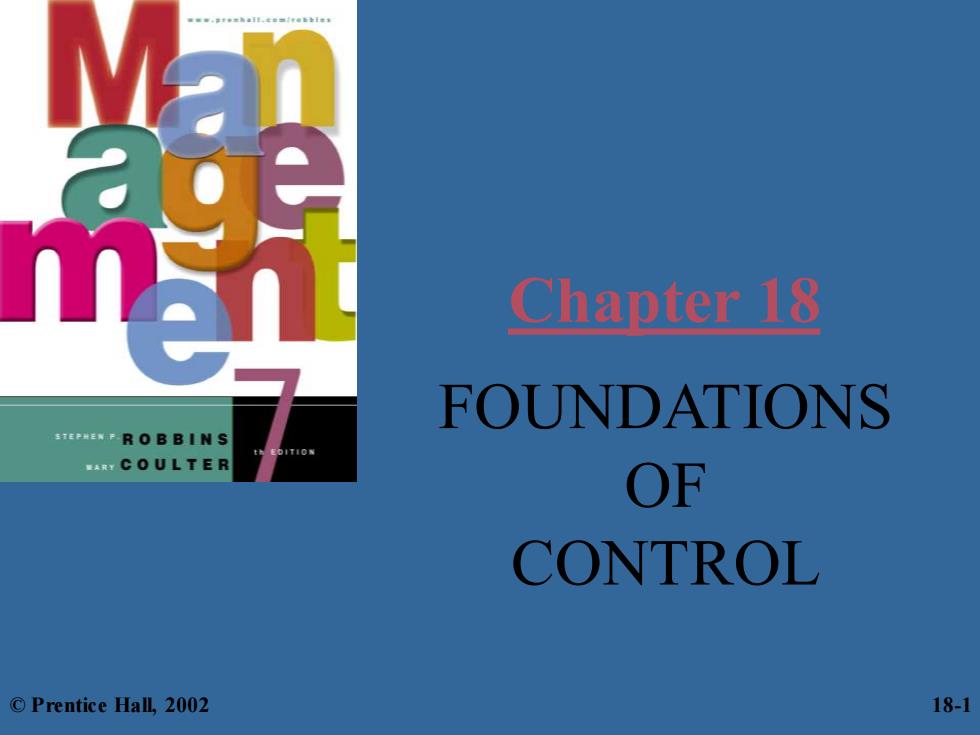
Chapter 18 FOUNDATIONS DROB BI NS ACOULTER OF CONTROL ©Prentice Hall,2002 18-1
Chapter 18 FOUNDATIONS OF CONTROL © Prentice Hall, 2002 18-1
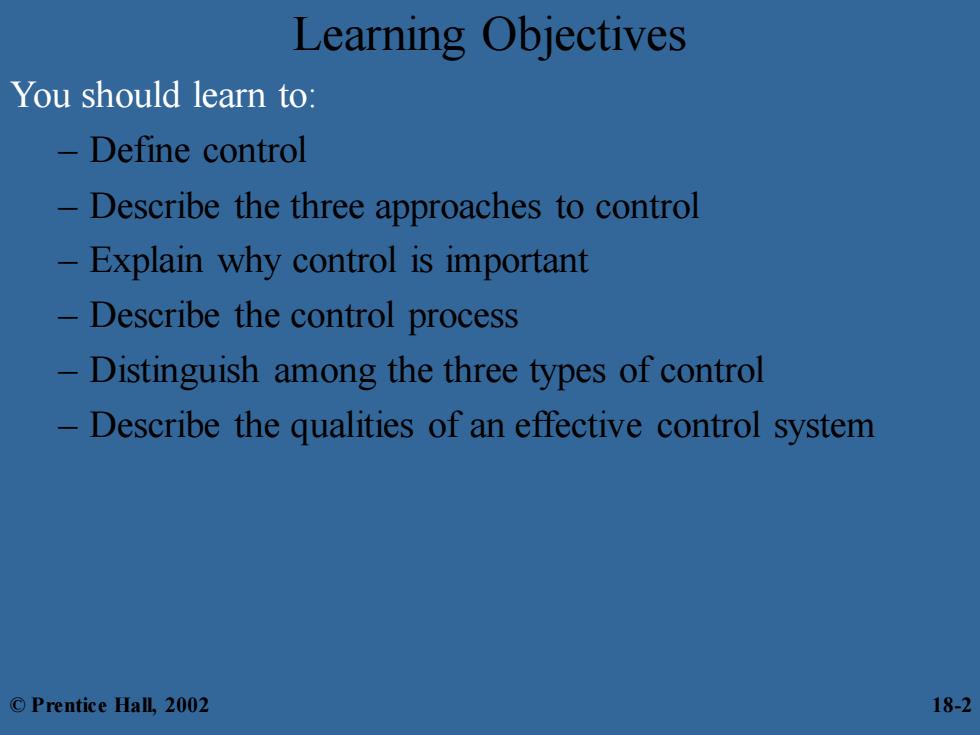
Learning Objectives You should learn to: Define control Describe the three approaches to control Explain why control is important Describe the control process Distinguish among the three types of control -Describe the qualities of an effective control system ©Prentice Hall,2002 18-2
Learning Objectives You should learn to: – Define control – Describe the three approaches to control – Explain why control is important – Describe the control process – Distinguish among the three types of control – Describe the qualities of an effective control system © Prentice Hall, 2002 18-2
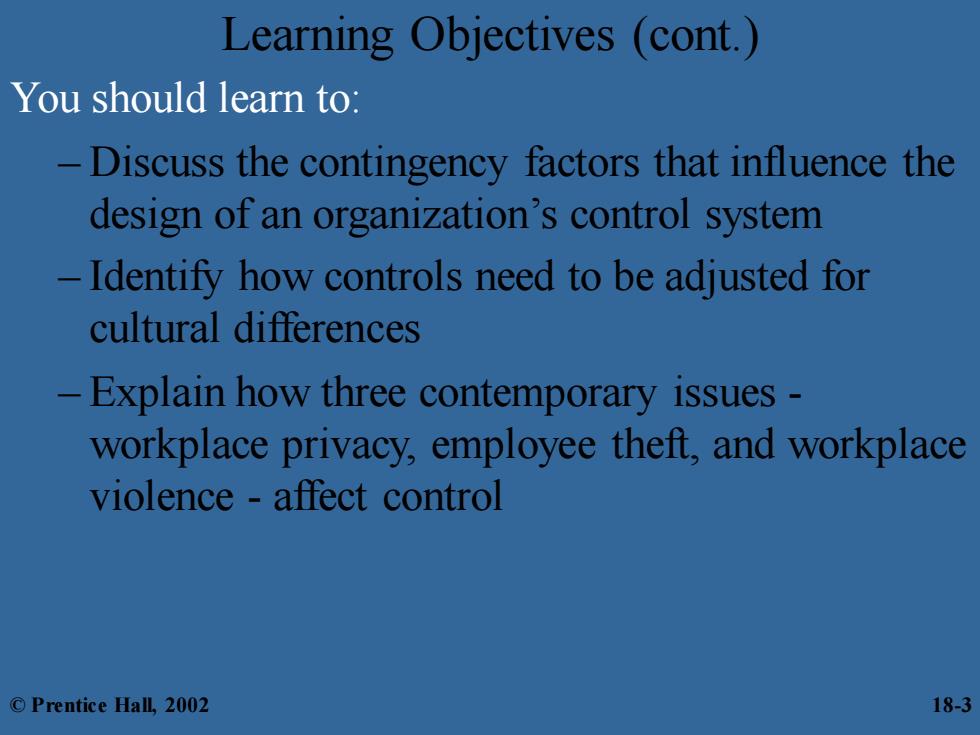
Learning Objectives (cont. You should learn to: Discuss the contingency factors that influence the design of an organization's control system Identify how controls need to be adjusted for cultural differences Explain how three contemporary issues workplace privacy,employee theft,and workplace violence affect control ©Prentice Hall,2002 18-3
Learning Objectives (cont.) You should learn to: – Discuss the contingency factors that influence the design of an organization’s control system – Identify how controls need to be adjusted for cultural differences – Explain how three contemporary issues - workplace privacy, employee theft, and workplace violence - affect control © Prentice Hall, 2002 18-3
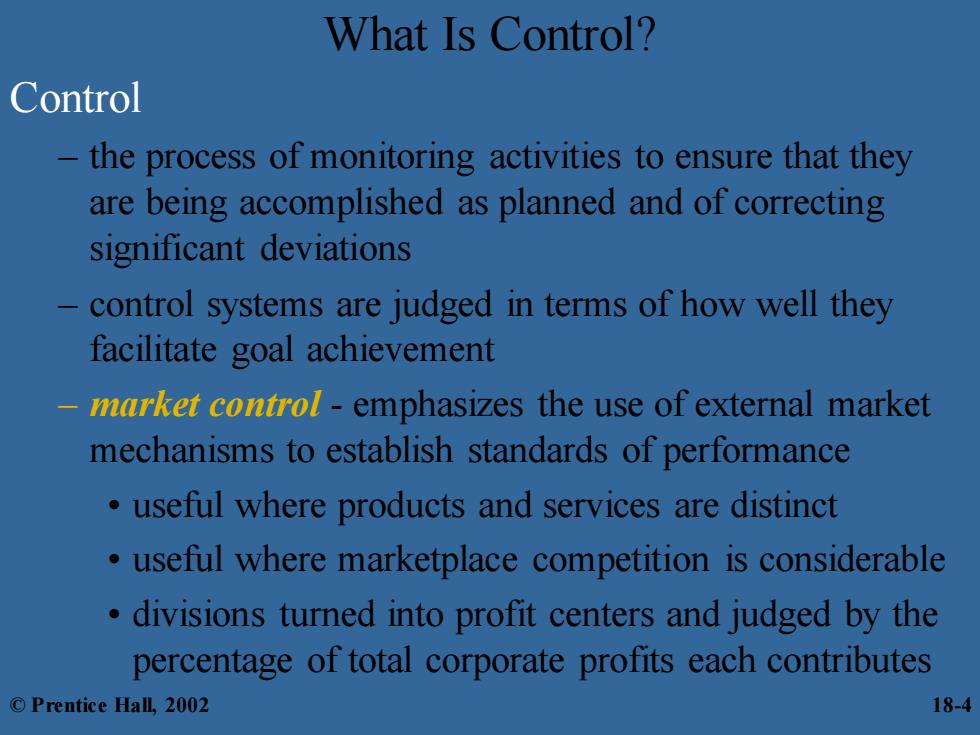
What Is Control? Control -the process of monitoring activities to ensure that they are being accomplished as planned and of correcting significant deviations control systems are judged in terms of how well they facilitate goal achievement marker control-emphasizes the use of external market mechanisms to establish standards of performance useful where products and services are distinct useful where marketplace competition is considerable divisions turned into profit centers and judged by the percentage of total corporate profits each contributes ©Prentice Hall,2002 18-4
What Is Control? Control – the process of monitoring activities to ensure that they are being accomplished as planned and of correcting significant deviations – control systems are judged in terms of how well they facilitate goal achievement – market control - emphasizes the use of external market mechanisms to establish standards of performance • useful where products and services are distinct • useful where marketplace competition is considerable • divisions turned into profit centers and judged by the percentage of total corporate profits each contributes © Prentice Hall, 2002 18-4
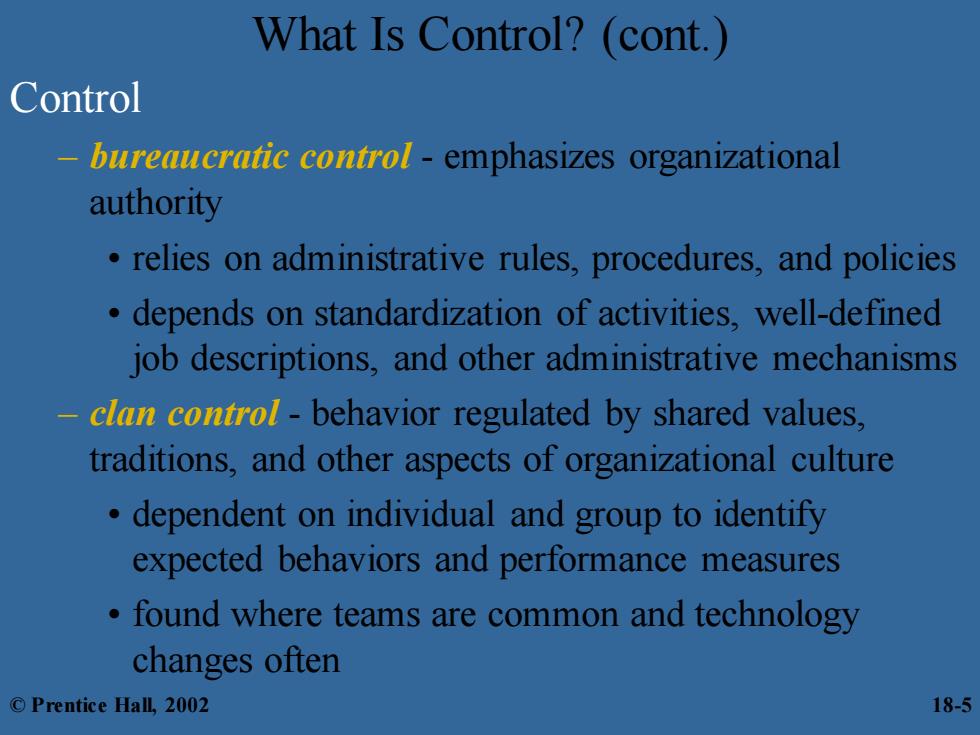
What Is Control?(cont. Control bureauerutic control emphasizes organizational authority relies on administrative rules,procedures,and policies depends on standardization of activities,well-defined job descriptions,and other administrative mechanisms -clan controll-behavior regulated by shared values, traditions,and other aspects of organizational culture dependent on individual and group to identify expected behaviors and performance measures found where teams are common and technology changes often ©Prentice Hall,2002 18-5
What Is Control? (cont.) Control – bureaucratic control - emphasizes organizational authority • relies on administrative rules, procedures, and policies • depends on standardization of activities, well-defined job descriptions, and other administrative mechanisms – clan control - behavior regulated by shared values, traditions, and other aspects of organizational culture • dependent on individual and group to identify expected behaviors and performance measures • found where teams are common and technology changes often © Prentice Hall, 2002 18-5